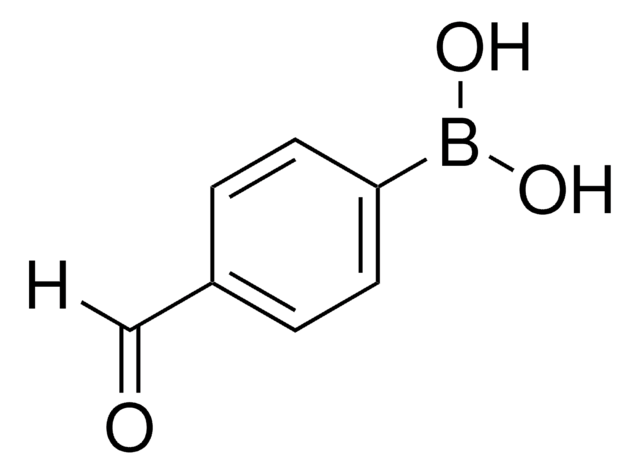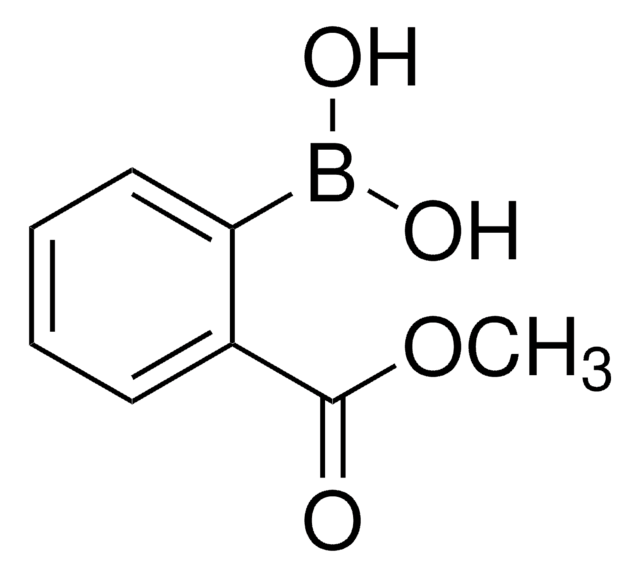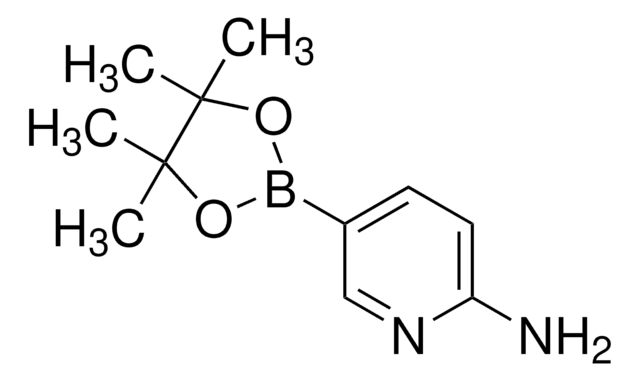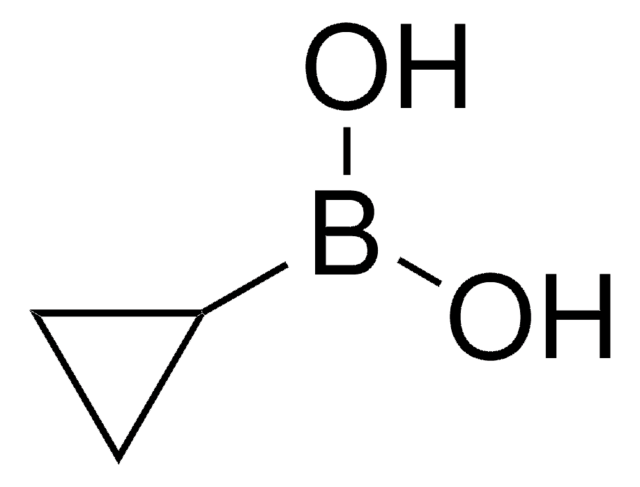All Photos(2)
About This Item
Linear Formula:
CH3COC6H4B(OH)2
CAS Number:
Molecular Weight:
163.97
MDL number:
UNSPSC Code:
12352103
PubChem Substance ID:
NACRES:
NA.22
Recommended Products
Quality Level
Assay
≥95%
impurities
<10% 3-acetylphenylboronic anhydride
mp
204-208 °C (lit.)
functional group
ketone
SMILES string
CC(=O)c1cccc(c1)B(O)O
InChI
1S/C8H9BO3/c1-6(10)7-3-2-4-8(5-7)9(11)12/h2-5,11-12H,1H3
InChI key
SJGGDZCTGBKBCK-UHFFFAOYSA-N
Application
3-Acetylphenylboronic acid can be used as a substrate:
- In the synthesis of symmetric biaryls via oxidative dimerization using a palladium catalyst and water as a solvent.
- In the synthesis of aryl fluorides through electrophilic fluorination reaction using acetyl hypofluorite.
- In the coupling reactions of organoboranes with olefins using molecular oxygen and palladium catalyst.
Signal Word
Warning
Hazard Statements
Precautionary Statements
Hazard Classifications
Eye Irrit. 2 - Skin Irrit. 2 - STOT SE 3
Target Organs
Respiratory system
Storage Class Code
11 - Combustible Solids
WGK
WGK 3
Flash Point(F)
Not applicable
Flash Point(C)
Not applicable
Personal Protective Equipment
dust mask type N95 (US), Eyeshields, Gloves
Choose from one of the most recent versions:
Already Own This Product?
Find documentation for the products that you have recently purchased in the Document Library.
Customers Also Viewed
Oxygen-promoted Pd (II) catalysis for the coupling of organoboron compounds and olefins
Jung YC, et al.
Organic Letters, 5(13), 2231-2234 (2003)
Oxidative dimerization: Pd (II) catalysis in the presence of oxygen using aqueous media
Parrish JP, et al.
Tetrahedron Letters, 43(44), 7899-7902 (2002)
Fluorination of aryl boronic acids using acetyl hypofluorite made directly from diluted fluorine
Vints I, et al.
The Journal of Organic Chemistry, 78(23), 11794-11797 (2013)
Our team of scientists has experience in all areas of research including Life Science, Material Science, Chemical Synthesis, Chromatography, Analytical and many others.
Contact Technical Service![[1,1′-Bis(diphenylphosphino)ferrocene]dichloropalladium(II)](/deepweb/assets/sigmaaldrich/product/structures/130/734/8846aa26-1858-458a-998d-8c306c13bf0f/640/8846aa26-1858-458a-998d-8c306c13bf0f.png)
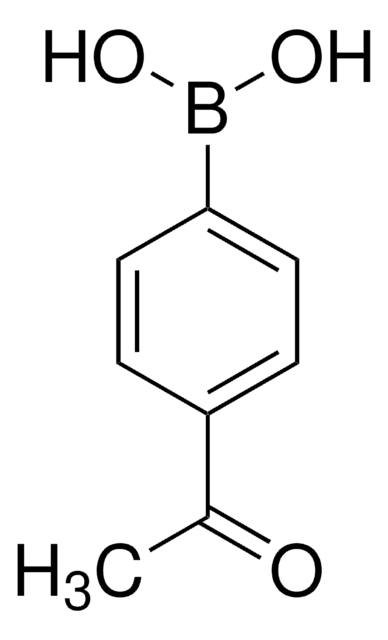
![[1,1′-Bis(diphenylphosphino)ferrocene]dichloropalladium(II), complex with dichloromethane](/deepweb/assets/sigmaaldrich/product/structures/825/986/4317978b-1256-4c82-ab74-6a6a3ef948b1/640/4317978b-1256-4c82-ab74-6a6a3ef948b1.png)

